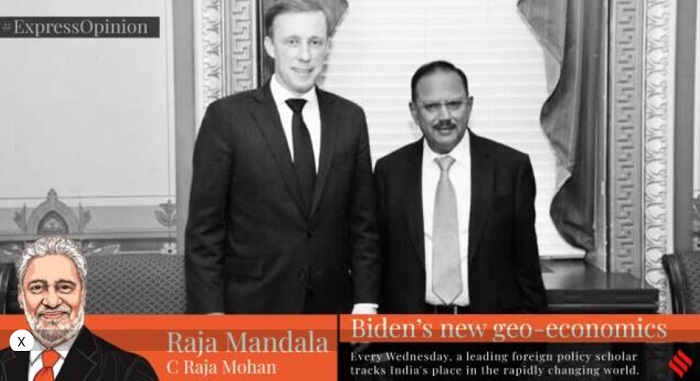
US National Security Adviser Jake Sullivan’s visit to Delhi this week is expected to finalise the agreements that are to be unveiled during Prime Minister Narendra Modi’s state visit to Washington on June 22. The public focus is on major deals to facilitate significant defence industrial collaboration and high-technology trade between the two nations.
The Indian policy communities, however, must also devote serious attention to the ambitious US plans to restructure the global economy away from the orthodoxies of the last four decades. There is no better interlocutor than Sullivan to offer insights into the new economic grand strategy of the US that questions the globalisation dogma. As the key adviser to Joe Biden on both domestic and foreign policy issues during the 2020 presidential campaign, Sullivan, then based at the Carnegie Endowment for International Peace in Washington, helped produce a report on ‘Making US Foreign Policy Work Better for the Middle Class’. That report has become the ideological foundation for Biden’s strong commitment to ensuring that foreign economic policy serves the interests of the American people. The focus on “economic security” has become the keystone for the Biden effort to engineer sweeping changes in Washington’s approach towards domestic manufacturing, international trade, technology coalitions, climate change, and multilateral development institutions.
This geoeconomic agenda is deeply tied to the Biden Administration’s geopolitical priorities, centred on competing vigorously with China, rebooting traditional alliances, building new partnerships, and constructing new regional and global coalitions. The major allies of the US including Britain, the European Union, and Japan – also Washington’s main economic partners and members of the G7 group – are engaged in intense internal debates on Biden’s new geoeconomics and negotiating with Washington in addressing its consequences.
